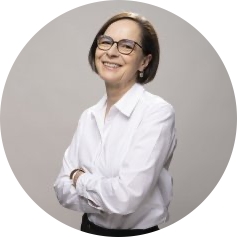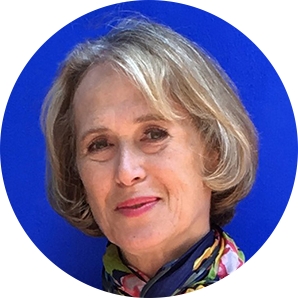
 institution
institution
Yasmine Belkaid and Miria Ricchetti took part in the Big event to defend their view of scientific freedom and research progress
Bpifrance Inno Generation (Big) was first organized in 2015 and is now the biggest business gathering in Europe. The event focuses on understanding future challenges and technological and societal trends, and offers the chance to meet and hear testimonials from business founders and leaders from major corporations and micro, small and medium-sized businesses.
The Big day is a unifying event that brings together entrepreneurs from throughout France and abroad, and is attended by business and institutional delegations from all over the world.
For its 10th anniversary, this year's edition was held on October 10 on the topic of "Progress". The event was attended, in-person and online, by all those with a role in the entrepreneurial dynamic. These figures provided inspiration, helped facilitate meetings and gave an insight into tomorrow’s key trends.
The 2024 edition brought together some 1,000 speakers and inspiring figures, including 150 top speakers (such as Stéphane Bancel, Moderna CEO; Sabrina Soussan, Suez CEO and Nicolas Hieronimus, L’Oréal Group CEO) who took to the different stages of the Accor Arena in Paris, host to the event, to express what the topic of progress inspired for them and address the tangible business challenges of attending entrepreneurs.
Two Institut Pasteur figures accepted the invitation to the emblematic event to defend research:
 Yasmine Belkaid, the Institut Pasteur’s President, spoke of defending scientific freedom in biomedical research. Giving her definition of progress as "a personal, intimate endeavor, a sort of freedom, as well as a taking of risks, and a commitment to the common good", Yasmine Belkaid shared her vision of scientific progress, which in particular calls for free basic research combining creativity, multidisciplinarity, diversity and humanism. Sharing the challenges posed to science today, Yasmine Belkaid singled out the shrinking of space for freedom and creativity, related largely to the decline in public funding and waning support for basic research. She also insisted on the "urgency of restoring the prestige of exploratory research and endowing it with appropriate means, as well as preparing for the future by "inciting young people to choose careers in research".
Yasmine Belkaid, the Institut Pasteur’s President, spoke of defending scientific freedom in biomedical research. Giving her definition of progress as "a personal, intimate endeavor, a sort of freedom, as well as a taking of risks, and a commitment to the common good", Yasmine Belkaid shared her vision of scientific progress, which in particular calls for free basic research combining creativity, multidisciplinarity, diversity and humanism. Sharing the challenges posed to science today, Yasmine Belkaid singled out the shrinking of space for freedom and creativity, related largely to the decline in public funding and waning support for basic research. She also insisted on the "urgency of restoring the prestige of exploratory research and endowing it with appropriate means, as well as preparing for the future by "inciting young people to choose careers in research".
View Yasmine Belkaid’s speech (starting at 3'19") here
Read Yasmine Belkaid’s LinkedIn post
 Miria Ricchetti, Head of the Molecular Mechanisms of Pathological and Physiological Aging Unit, researches the topic of brain organoids, an original innovation turned research tool that is increasingly used to study the cellular and neural mechanisms involved in neurodegenerative diseases. Miria Ricchetti in particular presented her team’s research in connection with the Cerebral Ageing project, an experiment conducted aboard the International Space Station (ISS) during which astronauts succeeded in maintaining brain organoid cultures in space in 2023 for the very first time. The samples returned to earth in very good condition to study the effects of the space flight. Their analysis widens the scope of knowledge in biology, particularly in the study of aging. Miria Ricchetti also affirmed that progress in scientific research can be of an incremental step-by-step or disruptive nature. The organoids in space experiment is an example of this. Like Yasmine Belkaid, she wanted to emphasize that "freedom, adequate funding and protection of progress are vital to advance biological research."
Miria Ricchetti, Head of the Molecular Mechanisms of Pathological and Physiological Aging Unit, researches the topic of brain organoids, an original innovation turned research tool that is increasingly used to study the cellular and neural mechanisms involved in neurodegenerative diseases. Miria Ricchetti in particular presented her team’s research in connection with the Cerebral Ageing project, an experiment conducted aboard the International Space Station (ISS) during which astronauts succeeded in maintaining brain organoid cultures in space in 2023 for the very first time. The samples returned to earth in very good condition to study the effects of the space flight. Their analysis widens the scope of knowledge in biology, particularly in the study of aging. Miria Ricchetti also affirmed that progress in scientific research can be of an incremental step-by-step or disruptive nature. The organoids in space experiment is an example of this. Like Yasmine Belkaid, she wanted to emphasize that "freedom, adequate funding and protection of progress are vital to advance biological research."